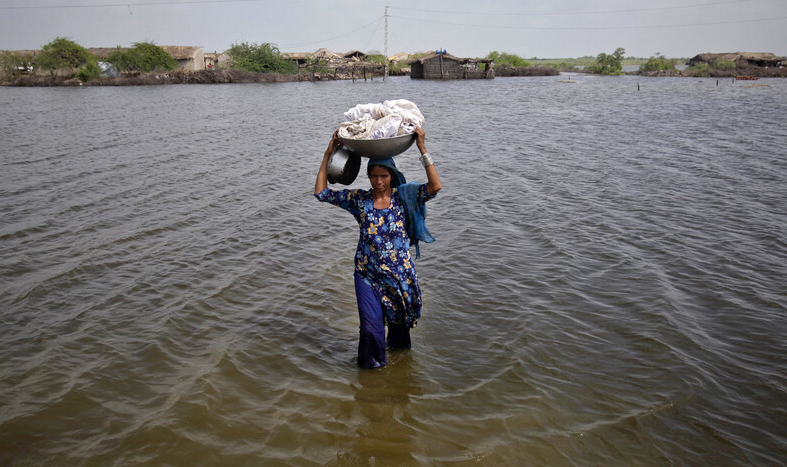Amid ongoing political and economic challenges, Pakistan faces exacerbated difficulties due to environmental conflicts, which have resulted in a staggering $100 billion loss over the past two decades from climate change impacts. This figure is comparable to the country’s total external debt of approximately $130 billion.
These issues were the focus of a thematic session titled “Environmental Conflict and Social Dialogue in Pakistan,” organized by the Sustainable Development Policy Institute (SDPI) on Thursday. The session, moderated by Dr. Zainab Ahmed from Beaconhouse National University (BNU), featured prominent speakers including Higher Education Commission (HEC) Chairman Dr. Mukhtar Ahmed, Imrana Tiwana from BNU, Prof. Dr. Arshi Saleem Hashmi from National Defence University, Qazi Saqib Basir from Muslim Aid Pakistan, and Prof. Rafi Amir-ud-Din from Comsats University, Lahore.
Speakers highlighted that environmental insecurity is creating multiple crises, hindering economic growth and threatening food security. Dr. Mukhtar Ahmed emphasized that environmental conflict is one of the main challenges facing the country, warning that future conflicts may arise over access to clean water and air. He urged for collective action to address environmental disturbances.
Dr. Ahmed also pointed out the misuse of agricultural land for housing developments, which poses a serious threat to food security. He called for an institutional mechanism to prevent the conversion of agricultural land for other purposes and stressed the need for sustainable reforestation efforts to combat deforestation and its impact on weather patterns and crop yields.
Prof. Dr. Arshi Saleem Hashmi noted that environmental conflict cannot be viewed in isolation, as it is intertwined with other societal challenges. She stressed that sustainable peace is directly linked to environmental security, affecting all segments of society.
Imrana Tiwana highlighted the economic impact of climate change, stating that it currently affects 8% of Pakistan’s GDP, a figure projected to rise to 30% by 2050, potentially reducing life expectancy.
Qazi Saqib Basir underscored the severe financial toll of climate change, with Pakistan suffering $100 billion in losses from natural disasters over the last two decades. He noted that rising temperatures and climate change have significantly undermined the country’s development efforts.
Prof. Rafi Amir-ud-Din discussed the limited success of conventional measures, such as bans and taxes, in reducing the use of single-use plastic bags. He pointed out that previous bans in Islamabad were temporary and largely ineffective.










